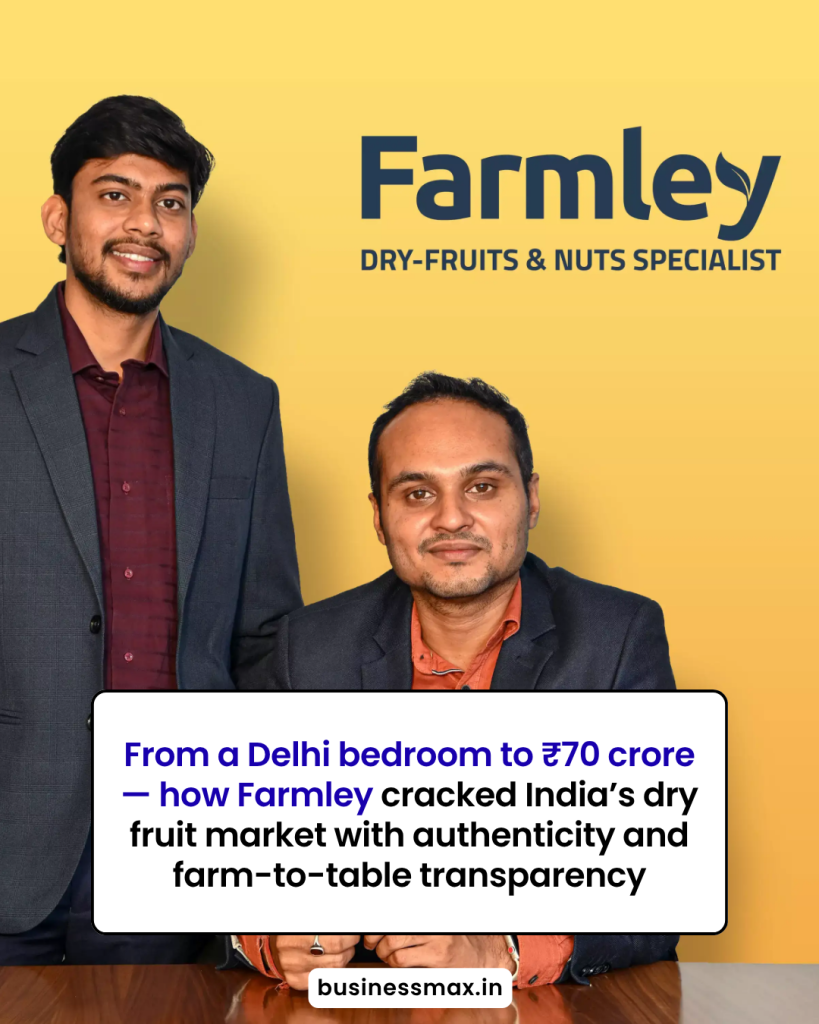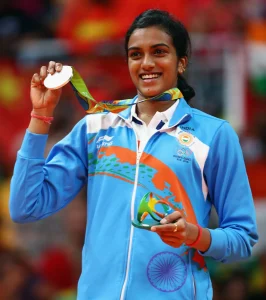From Bedroom Startup to ₹70 Crore Nutty Empire: How Farmley Redefined India’s Dry Fruit Market with Authentic Sourcing and Farm-to-Table Transparency

From Bedroom Startup to ₹70 Crore Nutty Empire: How Farmley Redefined India’s Dry Fruit Market with Authentic Sourcing and Farm-to-Table Transparency
Akash Sharma and Abhishek Agrawal, two 25-year-old marketing professionals from Delhi, decided to take on a hidden problem in India’s massive dry fruit industry — adulteration. With just ₹5 lakh from personal savings, they founded Farmley, a brand that promised pure, traceable, and ethically sourced dry fruits straight from farmers’ fields to customers’ plates.
What began in a tiny Delhi bedroom turned into a mini-warehouse soon evolved into one of India’s most trusted D2C health food brands. Sharma and Agrawal noticed that despite India being one of the world’s largest dry fruit markets — worth over ₹20,000 crore — consumers often faced poor quality, chemical-laden, and mixed-grade products. They wanted to restore trust in a category that was essential to Indian households but plagued by opacity.
Their approach was refreshingly direct. They started sourcing almonds, cashews, and raisins directly from farmers and co-operatives, bypassing middlemen. The duo personally packaged products in their apartment, using simple branding that emphasized purity and transparency.
The early response was encouraging. Health-conscious urban consumers began discovering Farmley through Instagram posts and word-of-mouth, attracted by its clear “farm-to-fork” storytelling. Within months, their social media-driven model turned initial 100 monthly orders into a loyal base of repeat customers.
By 2020, Farmley’s transparency-driven Reels and videos showcasing farmer partnerships and supply chain authenticity went viral. The brand’s relatable and educational tone helped it stand out amid the crowded health food market. Orders skyrocketed to 10,000 per month, and the founders expanded their home operations into a full-fledged distribution network.
Pivoting to a direct-to-consumer (D2C) model allowed Farmley to maintain control over quality and brand story. Partnering with Amazon, BigBasket, and Flipkart, the company reached nationwide audiences while staying true to its farmer-first philosophy.
By 2024, Farmley had built a strong digital presence and a loyal customer base of over 1 million buyers. Its ₹70 crore annual revenue came from a blend of online D2C sales, export orders to the UAE, and B2B partnerships with premium food retailers.
The brand’s product range expanded to include not just dry fruits, but snack mixes, seeds, trail packs, and flavored nuts — all free from artificial additives. This diversification kept Farmley relevant to modern, on-the-go consumers seeking healthy snacking alternatives.
Even more impressive, Farmley managed to achieve this scale without external funding, staying bootstrapped while maintaining profitability — a rarity in India’s D2C ecosystem. Their commitment to clean sourcing, transparent branding, and ethical business practices continues to resonate with a growing base of health-aware Indians.
As India’s wellness and superfood markets expand, Farmley stands out as a brand that connects purity with purpose. What started in a cramped Delhi flat with a handful of almonds and a mission to fix a broken supply chain has now become a ₹70 crore example of how trust can be a business model.
In a world of over-processed snacks and marketing hype, Farmley’s story reminds us that sometimes, the most powerful ideas are the simplest — go straight to the source, stay authentic, and let quality speak for itself.

Last Updated on: Thursday, October 16, 2025 2:55 pm by Business Max Team | Published by: Business Max Team on Thursday, October 16, 2025 2:55 pm | News Categories: Startup






